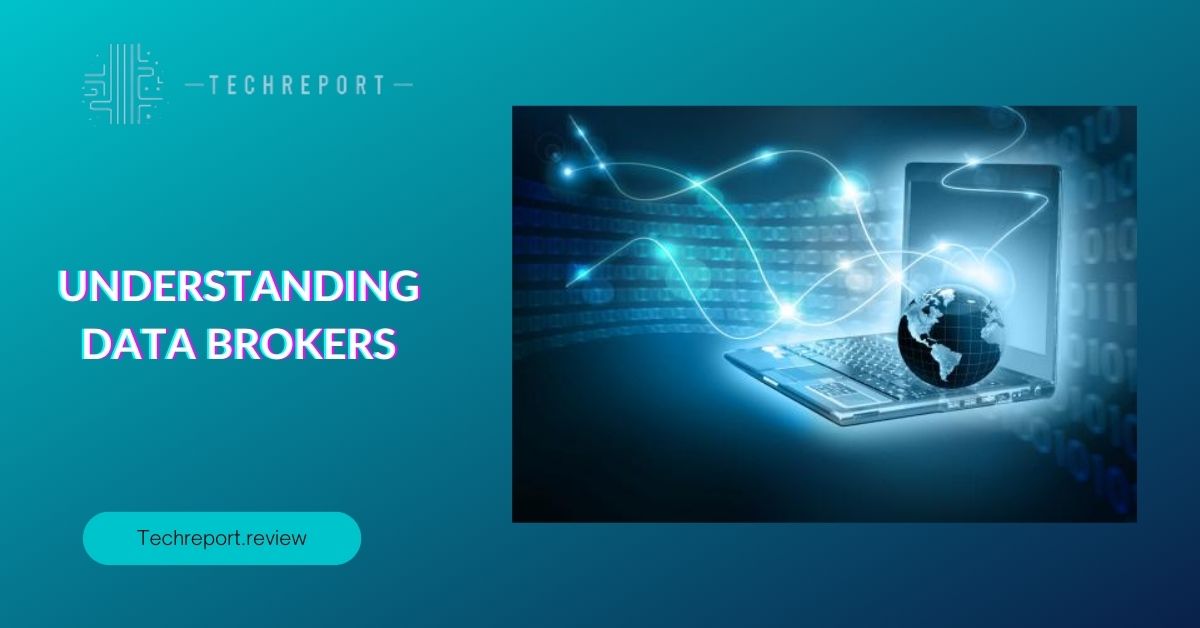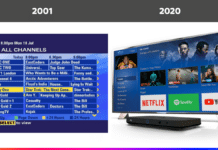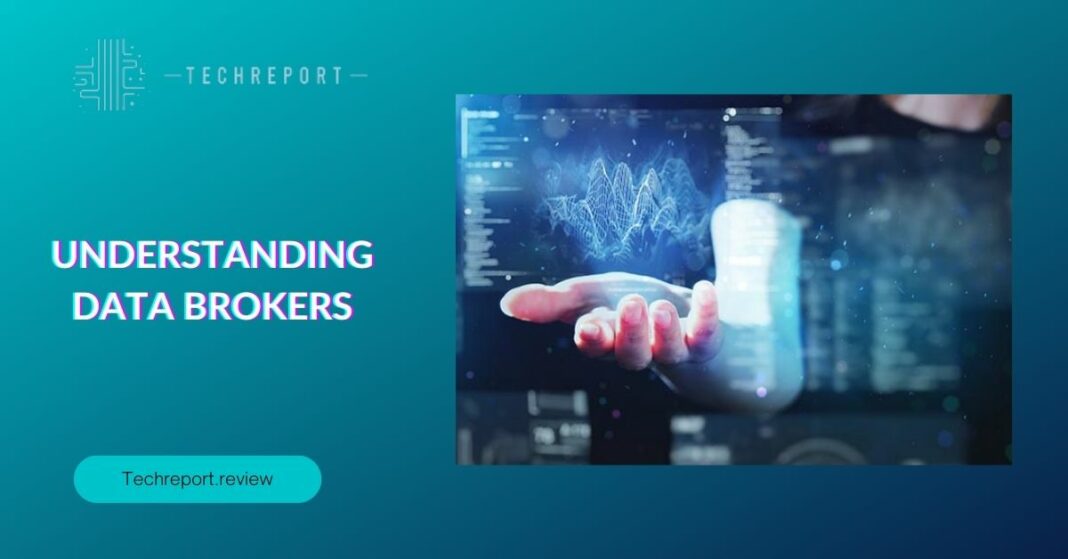Data Brokers Unmasked: The Privacy Tug-of-War
In an era defined by digitization and interconnectedness, the exchange of information has become both seamless and invisible. Amid this landscape, a significant player has emerged: data brokers. These entities hold the key to your online identity, wielding the power to shape your digital presence in ways you might not have imagined.
Have you ever wondered how that advertisement seems perfectly tailored to your interests? Or how do websites seem to know so much about your preferences? The answers often lead back to data brokers – behind-the-scenes players in the online realm who gather, dissect, and monetize your personal information.
Imagine a vast digital marketplace where every click, search, and interaction becomes a tradable commodity. This is the ecosystem where data brokers thrive. They meticulously gather data from various sources – your social media profiles, online transactions, public records, and more – weaving together a comprehensive tapestry of your online presence.
Their modus operandi involves creating intricate data profiles, detailing your habits, preferences, and tendencies. This process, often happening without your explicit knowledge, feeds into a broader system that shapes the content you see, the ads you encounter, and the experiences you have on the internet.
As the saying goes, knowledge is power. In the realm of data brokers, understanding their operation is your shield against potential privacy breaches. By comprehending how your data is collected, processed, and disseminated, you can take active steps to safeguard your personal information.
In an era where data breaches and cyber threats are rampant, being informed about the role of data brokers empowers you to make conscious decisions about the information you share online. It’s not merely about mitigating risks; it’s about reclaiming control over your digital identity.
The world of data brokers is a landscape that often operates in the shadows, shaping our digital interactions without us realizing it. By shedding light on their presence and methods, we unveil the intricate dynamics that impact our online privacy.
In the following sections, we’ll delve deeper into the mechanics of data brokers, the implications for your privacy, and the tools available, such as Incogni, that put you back in command of your digital footprint. Stay with us as we unravel the layers of this digital tapestry and equip ourselves to navigate the complexities of the digital age.
What Are Data Brokers?

In the intricate web of the digital world, data brokers stand as significant intermediaries between you and the vast realm of information swirling around the internet. These entities play a pivotal role in the acquisition, organization, and distribution of your personal information, often without your direct knowledge or consent.
Data brokers act as collectors and curators of the digital breadcrumbs you leave behind as you navigate the online landscape. They accumulate an astonishing array of information from numerous sources, ranging from your social media interactions to your online purchases, creating a comprehensive mosaic of your digital footprint.
Data brokers are essentially the middlemen who purchase, gather, and aggregate personal data from various sources. Their purpose lies in transforming raw data into valuable insights that companies and organizations can use to refine their marketing strategies, tailor advertisements, and even make informed decisions about their products and services.
Demographic Data:
Data brokers are adept at gathering demographic information such as age, gender, marital status, and geographic location. This allows them to create a detailed picture of who you are on a surface level.
Behavioral Data:
These brokers are not just interested in who you are, but also what you do. They collect data on your online behaviors, such as your website visits, the content you engage with, the links you click, and even the time you spend on specific platforms. This information assists in building a profile of your interests and habits.
Transactional Data:
Your buying habits are a treasure trove of information for data brokers. They track your online purchases, the products you browse, and the services you use. This data allows them to categorize you into consumer segments and predict your future preferences.
Data brokers occupy a crucial role in the data-driven landscape of today’s digital age. They wield the ability to convert disparate bits of information into actionable insights that businesses can utilize. However, with this power comes the need for transparency and user control. As we unravel the layers of data brokers’ operations, we’ll gain a better grasp of the complexities they introduce into our online lives and how we can navigate them wisely.
How Data Brokers Operate: The Mechanics
The operations of data brokers are akin to a digital detective agency, meticulously piecing together fragments of your online presence to create a comprehensive portrait. They employ a range of methods, each more intricate than the last, to gather data from diverse sources. These methods not only reflect their sophistication but also underscore the extensive reach they have in your digital life.
The cornerstone of data brokers’ operations lies in online tracking. As you navigate websites and interact with content, tracking mechanisms such as cookies and pixels record your actions. Data brokers tap into these digital breadcrumbs, amassing a treasure trove of information about your interests, browsing habits, and preferences. It’s this data that allows them to make educated guesses about your likely behavior and tailor content to suit your tendencies.
Data brokers go beyond the digital realm, delving into the annals of public records and government databases. This includes information from property records, marriage and divorce records, court records, and even driver’s license data. By amalgamating these offline details with your online activities, data brokers can create a more holistic profile that spans both your virtual and real-world identities.
Ever wondered why you receive emails or messages that seem oddly tailored to your interests? Data brokers source information from surveys you’ve taken, contests you’ve entered, and newsletters you’ve subscribed to. This data provides a sneak peek into your preferences and allows brokers to categorize you into specific consumer segments.
The era of social media has opened up new avenues for data brokers. They scrape social media platforms to extract information about your connections, interests, posts, and even the sentiments you express. This helps them build a psychological profile that goes beyond mere demographics.
The real magic of data brokers lies in their ability to weave these disparate strands of data into a cohesive narrative. They combine information from various sources to create intricate data profiles that outline your preferences, habits, and tendencies. This holistic view of your digital self enables them to predict your behaviors and cater to your needs, even before you’ve expressed them.
The methods employed by data brokers reveal an intricate dance between technological prowess and the quest for insights. Their ability to mine, aggregate, and dissect data from multiple sources underscores their prowess in understanding your online identity. As we delve deeper into their operations, we’ll uncover the implications of these practices for your privacy and explore avenues to regain control over your digital narrative.
The Implications for Your Privacy
In a world where information is power, the activities of data brokers hold significant implications for your privacy. The seemingly innocuous collection and sharing of personal data can lead to far-reaching consequences that often remain hidden from plain sight. Let’s delve into the potential risks and consequences posed by data brokers and their impact on your digital privacy.
Data brokers operate behind the scenes, and their activities may seem innocuous at first glance. However, the cumulative effect of their data collection practices can lead to a gradual erosion of your privacy. Every piece of information they gather contributes to a more comprehensive and accurate profile, exposing your habits, preferences, and behaviors.
The extensive data profiles created by data brokers become fodder for targeted advertising campaigns. While tailored ads may seem convenient, they also serve as a reminder that your every online move is being watched and analyzed. This level of personalization can sometimes feel invasive and might even lead to manipulative practices that exploit your vulnerabilities.
The more data brokers collect, the greater the risk that your information falls into the wrong hands. Data breaches have become a common occurrence, with malicious actors targeting the valuable troves of data held by brokers. These breaches can expose your sensitive information to the dark corners of the internet, leading to identity theft, financial fraud, and a host of other problems.
It’s easy to forget that your personal data has a monetary value. Data brokers trade your information as a commodity, often without your explicit knowledge or consent. This not only raises ethical concerns but also makes you question who truly benefits from the transactions involving your digital identity.
A significant challenge arises from the fact that individuals are often unaware of the extent of data collection and sharing. The intricate web of data brokers’ operations operates in the shadows, leaving users in the dark about what information is being gathered and how it’s being used.
Data brokers’ activities don’t just influence ads; they also shape the content you see, the news you encounter, and even the way you interact with online platforms. This manipulation of your digital experiences can lead to filter bubbles, where you’re exposed only to information that aligns with your existing beliefs.
As we navigate the digital landscape, it’s crucial to be aware of the potential pitfalls posed by data brokers’ activities. The data we generate while engaging with the online world is a reflection of our identity, behaviors, and preferences. By understanding the implications of data collection and sharing, we can take proactive steps to protect our digital selves and regain control over the information that shapes our online experiences. In the subsequent sections, we’ll explore solutions, tools, and strategies to navigate this landscape with vigilance and awareness.
The Invisible Trade: Selling Your Personal Data
In the digital age, your personal data has become a valuable currency, exchanged in an invisible marketplace that operates beyond the purview of your daily interactions. Data brokers serve as the brokers of this invisible trade, facilitating the exchange of your information to a variety of stakeholders. Let’s dive into the business model of data brokers, the ecosystem they thrive in, and the shadowy concept of “shadow profiles.”
Data brokers capitalize on the fact that your digital interactions generate a treasure trove of information that is immensely valuable to a wide array of parties. Advertisers, marketers, researchers, and even malicious actors covet this data for their own purposes. Data brokers operate as intermediaries, collecting vast amounts of personal information and packaging it into profiles that can be sold to the highest bidder.
Data brokers primarily cater to two categories of buyers. The first includes legitimate entities such as advertisers and marketers who seek to deliver targeted content and advertisements to users. By understanding your preferences, behaviors, and habits, these buyers can tailor their messages to resonate with you, increasing the likelihood of engagement and conversion.
The second category comprises less scrupulous buyers – cybercriminals and malicious actors. These entities are interested in exploiting your data for financial gain, identity theft, phishing scams, and more. The information collected and sold by data brokers can serve as a treasure trove for these nefarious actors, making you susceptible to a range of cyber threats.
A particularly unsettling aspect of data brokers’ activities is the creation of shadow profiles. These profiles are like digital ghosts, built using information you might not have consciously provided. Data brokers stitch together details from your online interactions, public records, and more to create profiles that reflect your identity, even if you’ve never directly engaged with them.
The creation and sale of personal data profiles have far-reaching implications for your autonomy over your digital self. The information that shapes these profiles isn’t always accurate or up-to-date, leading to a situation where you’re defined by data points you never consented to share.
As we peer into the world of data brokers and the invisible trade they facilitate, a sense of unease might creep in. The commodification of personal information, the complex ecosystem of buyers, and the concept of shadow profiles all paint a picture of a digital landscape where control over our own data is increasingly elusive. However, knowledge is power, and by understanding these dynamics, we can take steps to regain control, make informed choices, and advocate for a digital realm where our privacy is respected and our data is safeguarded.
The Threat of Targeted Advertising and Profiling
In the vast expanse of the digital universe, every click, search, and interaction serves as a breadcrumb that data brokers eagerly gather to construct a map of your online identity. This map, however, isn’t just for their benefit; it’s a valuable asset in the realm of targeted advertising and consumer profiling. In this section, we’ll delve into how data brokers’ activities fuel these practices and explore the potential privacy concerns and manipulative tactics that may arise.
Data brokers’ intricate profiles provide advertisers and marketers with a treasure trove of insights about you. This wealth of data allows them to create tailored advertisements that align with your preferences, habits, and interests. The precision of targeting is impressive: you might find yourself presented with ads for products you were just considering or topics you were recently exploring.
Consumer profiling is the art of creating a digital persona that encapsulates your behaviors, preferences, and demographics. This persona, curated from the data collected by data brokers, helps marketers segment audiences into specific categories. As a result, you’re not just a consumer; you’re part of a nuanced group with characteristics that drive purchasing decisions.
While the notion of seeing ads that are relevant to your interests might initially seem appealing, it presents a privacy paradox. The very data that enables these personalized ads also exposes you to a level of surveillance that can feel intrusive. Every ad that seems to know your desires is a reminder that your digital actions are being tracked and analyzed.
Personalized ads are not just about convenience; they’re about influencing your decisions. Advertisers leverage the insights gained from data brokers to craft messages that evoke emotional responses and prompt actions. This can lead to a scenario where your choices are subtly nudged in directions you might not have intended, raising concerns about manipulation.
Data brokers’ activities contribute to the creation of filter bubbles and echo chambers, where you’re exposed primarily to content that reinforces your existing beliefs. While this may seem harmless, it can lead to a distorted view of reality and hinder your ability to engage with diverse perspectives.
Targeted advertising has the potential to inadvertently reinforce discrimination and bias. If certain groups are consistently excluded from specific ads or promotions due to their profile, it can perpetuate inequalities and limit opportunities.
As we traverse the landscape of targeted advertising and consumer profiling, it’s essential to recognize the double-edged nature of personalization. While tailored content can enhance our digital experiences, it’s vital to maintain a critical stance and be mindful of the data we share. By understanding the mechanisms at play and the potential for manipulation, we can navigate this landscape with our privacy intact and make choices that align with our values and autonomy.
Privacy Erosion and Data Breach Vulnerability
In the digital age, the abundance of data has transformed our lives in countless ways, but it has also ushered in new vulnerabilities. Data brokers, with their insatiable appetite for information, play a significant role in exacerbating these vulnerabilities. In this section, we’ll explore how the extensive data collection of data brokers exposes individuals to heightened risks of data breaches. We’ll also delve into real-world examples that underscore the potential consequences of data broker involvement.
Data brokers amass a vast wealth of personal information, creating a rich tapestry that maps our lives. This intricate portrait, while valuable for advertisers and marketers, is equally enticing to malicious actors seeking to exploit it for their gain. The delicate balance between data and security becomes even more precarious as data brokers trade information in the invisible market.
Data breaches are no longer isolated incidents; they have the potential to be catastrophic. The comprehensive profiles assembled by data brokers provide a one-stop-shop for cybercriminals, condensing an individual’s personal, financial, and online information into a single target. This magnified impact can lead to identity theft, financial fraud, and irreparable damage to one’s reputation.
- Equifax: In 2017, Equifax, a major credit reporting agency, suffered a data breach that exposed sensitive personal and financial information of nearly 147 million individuals. The breach’s magnitude was partly attributed to the comprehensive data profiles that data brokers had already compiled, making individuals more vulnerable to this massive breach.
- Exactis: In 2018, it was discovered that a marketing data broker named Exactis had left an unsecured server containing detailed information on nearly 340 million individuals exposed. The data included personal details such as phone numbers, addresses, and even individual characteristics, opening the door to identity theft and targeted scams.
The extensive data collected by data brokers often includes not just basic personal details but also financial information. This makes individuals susceptible to fraud, unauthorized transactions, and even full-scale financial theft.
As we’ve seen, the impact of data breaches often extends beyond the immediate targets. Compromised data broker profiles can lead to a domino effect, enabling hackers to access multiple accounts and services linked to an individual.
The interconnectedness of data broker activities and data breaches underscores the importance of vigilance in the digital realm. As individuals, we find ourselves at the nexus of these interactions, with our data being sought-after commodities. The real-world examples of Equifax and Exactis serve as sobering reminders that the consequences of data breaches can ripple far beyond the initial breach. By taking steps to secure our data, being mindful of our digital interactions, and advocating for stricter regulations, we can play a role in safeguarding our digital identities and mitigating the risks posed by the dynamic interplay between data brokers and cyber threats.
Protecting Your Privacy: The Role of Incogni
In the era of digital data proliferation, where our personal information is dispersed across a vast landscape, the need for guardians of privacy has never been more pressing. Enter Incogni – a sentinel standing at the crossroads of data brokerage and personal autonomy. In this section, we’ll introduce you to Incogni, shed light on its mission, and explore how it empowers users to regain control over their data privacy.
Incogni’s core mission revolves around a simple yet profound idea: the right to have control over your own personal information. In a landscape where data brokers often operate in the shadows, Incogni emerges as a beacon of transparency, advocating for individuals’ right to decide how their data is collected, stored, and used.
At the heart of Incogni’s strategy lies a powerful approach – automated data removal. It’s a solution that empowers users by allowing them to take charge of their digital narrative. Here’s how it works:
Step 1: Registration and Subscription:
The journey begins when users register and subscribe to Incogni. This marks the pivotal point where they transition from being passive subjects of data collection to active participants in safeguarding their privacy.
Step 2: Data Removal Requests:
Incogni’s arsenal includes an automated data removal tool that sends out requests to data brokers on the user’s behalf. These requests, backed by privacy laws such as GDPR and CCPA, demand the removal of personal information from the brokers’ databases.
Step 3: Supported by Legal Frameworks:
Incogni leverages the strength of legal frameworks like GDPR and CCPA to ensure that data brokers comply with the removal requests. These privacy laws equip users with the authority to request the deletion of their personal data from databases.
Step 4: Continuous Monitoring and Maintenance:
Privacy is not a one-time endeavor; it’s an ongoing commitment. Incogni recognizes this by regularly conducting sweeps to ensure that users’ data remains removed from data brokers’ databases. This continuous monitoring reinforces the sense of control that users gain through the serv
While data removal is Incogni’s cornerstone, its mission goes beyond mere erasure. Incogni understands that education and awareness are equally important components of reclaiming privacy. As part of its commitment to users, Incogni offers educational resources, informative newsletters, and privacy guides. By keeping users informed about data privacy news and best practices, Incogni equips them with the tools to navigate the digital landscape with confidence.
In a world where data brokers thrive and data breaches loom, Incogni emerges as a vital partner in the quest for digital autonomy. By offering a tangible solution that aligns with legal protections, Incogni empowers users to assert control over their online identities. Through data removal and education, Incogni stands as a shield, protecting the integrity of your personal information and enabling you to embrace the digital age without compromising your privacy.
How Incogni Employs Privacy Laws
In a world where data is often wielded as a double-edged sword, legal mechanisms have emerged as crucial safeguards to protect individuals’ privacy rights. Incogni, as a guardian of digital autonomy, harnesses the power of privacy laws such as GDPR (General Data Protection Regulation) and CCPA (California Consumer Privacy Act) to ensure that individuals’ rights are respected and upheld. In this section, we’ll explore how Incogni employs these privacy laws to enforce data removal and empower individuals to regain control over their personal information.
General Data Protection Regulation (GDPR), a landmark privacy law in the European Union, is a formidable ally in Incogni’s mission. At its core lies the “right to be forgotten” or the “right to erasure.” This right grants individuals the authority to demand the deletion of their personal data from databases, especially when the data is no longer necessary for the purposes it was collected or when consent is withdrawn.
California Consumer Privacy Act (CCPA), a trailblazing law in the United States, shares a common thread with GDPR by placing control back in the hands of individuals. CCPA provides consumers, particularly those in California, the right to request the deletion of their personal information from businesses’ databases. It’s a proactive step toward putting users in command of their data and its fate.
Incogni harnesses the power of these legal frameworks to ensure data brokers comply with users’ requests for data removal. When users engage Incogni’s services, the automated data removal tool generates removal requests that are backed by the authority of GDPR and CCPA. This legal weight compels data brokers to take action and erase the requested data from their databases.
By leveraging these laws, Incogni strengthens individuals’ control over their data. In a landscape where data brokers often operate with minimal transparency, Incogni’s utilization of GDPR and CCPA offers a tangible way for users to exercise their rights. This approach empowers users to proactively curate their digital presence, ensuring that their personal information doesn’t linger in the hands of entities they haven’t explicitly authorized.
At its core, the employment of privacy laws underscores the belief that privacy is a fundamental human right. GDPR and CCPA place individuals at the forefront, acknowledging their autonomy and granting them the tools to safeguard their data. Through these laws, individuals gain the ability to shape their digital footprint and to decide the extent to which their information is shared and utilized.
Incogni’s utilization of privacy laws serves as a shield against the often intrusive world of data brokerage. By drawing upon the legal weight of GDPR and CCPA, Incogni provides users with a robust mechanism to enforce data removal. This strategic alignment of technology and legislation ensures that individuals are not passive bystanders in the data ecosystem; rather, they emerge as proactive agents who can assert control, protect their privacy, and navigate the digital landscape with confidence.
In Crux
In a world where every digital interaction leaves a trace, the role of data brokers in shaping our online identity cannot be understated. Throughout this exploration, we’ve unveiled the intricacies of data brokers’ operations, their far-reaching implications, and the potential vulnerabilities they expose us to. As we conclude this journey, let’s recap the key takeaways and emphasize the importance of being vigilant guardians of our online privacy.
Data brokers operate in the shadows, collecting, aggregating, and trading our personal information. They construct intricate profiles that paint a detailed picture of our digital selves, often without our explicit consent or awareness.
The data broker ecosystem gives rise to targeted advertising, consumer profiling, and manipulation. While tailored content can enhance our digital experiences, it’s crucial to be aware of the trade-offs between personalization and privacy erosion.
The extensive data collection by data brokers makes us susceptible to data breaches, which can have far-reaching consequences beyond the immediate breach. The convergence of data brokers and cyber threats underscores the need for heightened awareness and protection.
In the midst of this intricate landscape, Incogni emerges as a solution, offering automated data removal and leveraging privacy laws such as GDPR and CCPA. Incogni empowers individuals to regain control over their personal information, aligning with legal mechanisms that place privacy at the forefront.
As digital citizens, the responsibility to safeguard our privacy rests with us. Staying informed about data brokers, their activities, and their implications is the first step toward taking control. By being proactive, we can navigate the digital landscape with confidence, making choices that align with our values.
As you journey through the digital landscape, consider exploring services like Incogni. By employing automated data removal and leveraging privacy laws, Incogni offers a tangible way to protect your personal information. It empowers you to curate your digital identity, assert control over your data, and send a clear message that your privacy matters.
The story of your digital presence is meant to be written by you, with you at the helm of every decision about what information is shared and with whom. The intricate interplay between data brokers, privacy laws, and solutions like Incogni forms the backdrop against which you can reclaim your digital autonomy. By staying informed, making conscious choices, and embracing tools that safeguard your privacy, you can navigate the digital realm with confidence, embracing the boundless opportunities it offers while ensuring that your personal data remains under your control.
How much did you like our detailed Understanding Data Brokers: Threats to Online Privacy. Please share these Blogs with your friends on social media.
Related Blogs
- Is iPhone 14 Worth the Hype
- iPhone 15 Pro
- Apple CarPlay
- Apple Watch
- iPhone 6 vs Nexus 6
- Apple Vision Pro
FAQs about Data Brokers
How do data brokers gather my information?
Data brokers employ a range of methods to gather information, including online tracking using cookies and pixels, scraping social media platforms, accessing public records and government databases, and even sourcing data from surveys and subscription lists.
What are the risks of targeted advertising and consumer profiling?
Targeted advertising and consumer profiling can lead to privacy concerns as your personal data is used to tailor advertisements and content to your preferences. This level of personalization can feel intrusive and may lead to manipulation of your decisions.
Can data brokers contribute to data breaches?
Yes, data brokers' extensive collections of personal information can make individuals more vulnerable to data breaches. Cybercriminals target data brokers' databases for valuable troves of data, which can lead to identity theft, financial fraud, and other cyber threats.
How does Incogni work to protect my data privacy?
Incogni is a subscription-based service that employs automated data removal to help users exercise their right to have data brokers delete their personal information. It leverages privacy laws like GDPR and CCPA to ensure data brokers comply with removal requests.
What legal mechanisms does Incogni use for data removal?
Incogni uses privacy laws such as GDPR and CCPA to enforce data removal. GDPR provides individuals in the EU the right to have their data deleted, while CCPA grants consumers in California the authority to request data deletion.
Is Incogni legitimate and secure?
Yes, Incogni is a legitimate legal entity that follows the guidelines of data privacy laws like GDPR and CCPA. It prioritizes security and uses legal frameworks to protect the rights of its customers.
How does Incogni differentiate itself from other privacy tools?
Incogni stands out by combining automated data removal with legal enforcement through privacy laws. It offers a comprehensive approach to protect your privacy by removing your data from data brokers' databases and empowering you to control your online identity.
How can I take proactive steps to protect my online privacy?
To protect your online privacy, stay informed about data broker activities, use privacy settings on social media, be cautious about sharing personal information online, and explore tools like Incogni that help you regain control over your data.
Why is it important to stay educated about data privacy?
Staying educated about data privacy empowers you to make informed decisions about how your personal information is used and shared. It enables you to navigate the digital landscape with awareness and take steps to safeguard your privacy in an age where data is a valuable commodity.
























